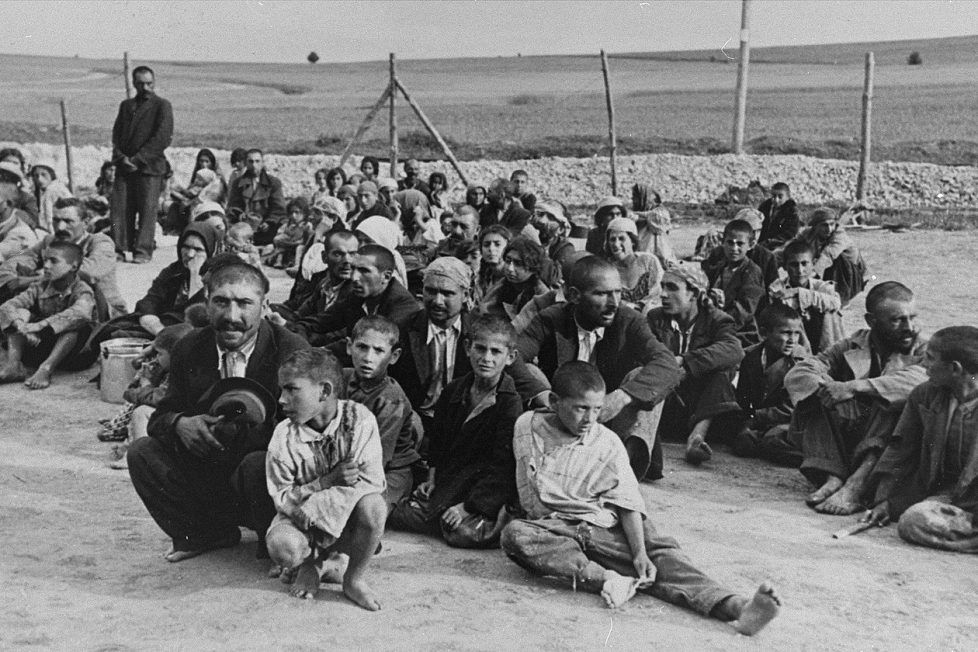European Persecution of Africans


After Morocco’s shocking 2-0 victory over Belgium at the World Cup on Sunday, riots broke out in several Belgian and Dutch cities.
After using water cannons and tear gas to disperse crowds in Brussels and eight more in Antwerp in the north, police detained approximately a dozen people. The Dutch port city of Rotterdam reported two police injuries. A tense quiet had returned to the majority of the affected cities by late Sunday night.
Numerous rioters lit electric scooters on fire, tipped over and burnt automobiles, and pelted vehicles with rocks. Moroccon immigrants in Brussels led to the street after winning in FIFA. Interestingly sentiment against the pre-colonialists still seems intact by these reactions.
There are many examples of brutality in the history of European colonialism in Africa, including the taking of various blood-soaked “trophies” and “mementos” from the victims.
The severed skull of Koitalel Arap Samoei, a spiritual leader who was assassinated in 1905 while the country was under British colonial rule, was recently requested by members of the Nandi group, an East African ethnic tribe situated in Kenya.
Samoei had commanded his people during a protracted uprising against the British. Richard Meinertzhagen, a British officer, persuaded him to a meeting to arrange a truce but shot him when he arrived. According to testimony that has been publicly documented, Samoei’s head was afterward cut from his body and transported to England as a prize.
The whereabouts of Samoei’s skull at this time are unclear. The Nandi County government reportedly believes that it is either with the Meinertzhagen family or in the possession of a museum in Britain, according to a report in The New York Times. The British government and all notable museums have remained silent on the subject.
The Democratic Republic of the Congo received a gold-crowned tooth belonging to Patrice Lumumba, a leader of the nation’s freedom movement who later served as its first Prime Minister following its liberation from Belgium in 1960, the Belgian government in June of this year.
Belgium and other European countries had misgivings about Lumumba because he was seen as having ties to the USSR during the Cold War. In a speech on Independence Day in 1960, Lumumba displayed a stoutness that infuriated many Europeans when he accused Belgium of holding Congolese citizens in “humiliating slavery.” Lumumba, who was 35 at the time, was executed by secessionist forces a few months later after a coup led by Colonel Mobutu, with the active assistance of Belgian authorities.
After being initially dumped into a small grave, Lumumba’s body was later removed, dismembered, and dissolved in acid to ensure that no remains remained. According to a BBC report, Belgian policeman Gerard Soete, who was tasked with disposing of the body, brought Lumumba’s gold-crowned tooth home with him. Over 60 years after Lumumba’s passing, it was eventually given back to his family and given a proper funeral.
Belgian colonialists plunder the nation’s riches indiscriminately and transform it into a massive labor camp. According to historical accounts, those who refused to work were slaughtered, and occasionally entire towns were burned in retaliation. Workers who failed to collect enough rubber were punished by having their hands and feet amputated; this penalty was occasionally extended to include their spouses and children.
To demonstrate that the soldiers were not wasting their ammunition, the severed limbs of the dead and occasionally even the living were collected in a particularly perverse act. According to reports, the limbs were “smoked” and preserved before being given in groups to their superiors. The greater the reward a soldier received, the more amputated limbs he presented.
DISCLAIMER: The author is solely responsible for the views expressed in this article. The author carries the responsibility for citing and/or licensing of images utilized within the text.
